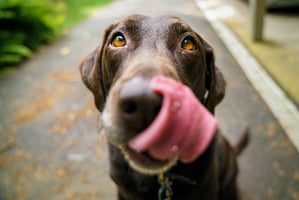Puppies have sharp teeth and they can bite hard. It is important to teach your puppy not to bite as...
How to Stop a Puppy from Biting: Tips to Teach Proper Behavior
Having a puppy in the house is a wonderful experience, but it can be challenging when the puppy starts biting. This article will provide tips on how to stop a puppy from biting and provide advice on how to help a puppy learn proper behaviour. Read on to find out more about how do u stop a puppy from biting.
Identify the Reasons Why the Puppy is Biting
In order to effectively stop a puppy from biting, it is important to first identify the reasons why the puppy is biting. Puppies may bite for various reasons, such as teething, playing, exploring, or feeling scared or anxious. Understanding the reasons behind the biting is key to helping the puppy learn proper behaviour.
Teething: Puppies typically start teething between 4 and 6 months of age. During this period, the puppy may become irritated by the discomfort of their teeth coming in and may start to bite to help relieve the pain.
Playing: Puppies may also bite when they are playing. This can be particularly common when puppies are playing with other puppies or when they are playing with their human owners.
Exploring: Puppies are curious and may bite when they are exploring their environment. They may also bite when they are curious about something they do not understand.
Fear and Anxiety: Puppies may also bite when they are feeling scared or anxious. This is often the case when they are in unfamiliar situations or when they are approached by strangers.
Prevent the Puppy from Biting
Once the reasons for the puppy’s biting have been identified, it is important to take steps to prevent the puppy from biting. There are several things that can be done to help prevent the puppy from biting, including the following:
- Provide Chew Toys: Providing the puppy with chew toys can help to relieve the discomfort of teething and can also help to redirect the puppy’s energy away from biting. It is important to ensure that the chew toys are safe and appropriate for the puppy’s age and size.
- Supervise Playtime: Supervising the puppy during playtime can help to reduce the risk of the puppy biting. If the puppy starts to bite, it is important to intervene and redirect the puppy’s behaviour.
- Limit Stress: Limiting the puppy’s exposure to stressful situations can help to reduce the risk of the puppy biting due to fear or anxiety. It is important to ensure that the puppy is not exposed to unfamiliar people or situations until they have had time to adjust and become comfortable.
- Provide Exercise: Providing the puppy with regular exercise can help to reduce their energy levels and can help to reduce the risk of the puppy biting due to boredom or frustration.
Stop the Puppy from Biting
Once steps have been taken to prevent the puppy from biting, it is important to take steps to stop the puppy from biting when it does occur. The following tips can help to stop the puppy from biting:
- Redirect the Puppy’s Attention: When the puppy starts to bite, it is important to redirect the puppy’s attention to something else. This can be done by providing the puppy with a chew toy or by offering the puppy a treat.
- Ignore the Puppy: Ignoring the puppy when it starts to bite can help to stop the puppy from biting. It is important to remain calm and not to shout at the puppy or punish the puppy for biting.
- Provide Positive Reinforcement: Providing the puppy with positive reinforcement when it does not bite can help to encourage the puppy to learn proper behaviour. Praise and treats are effective ways to reward the puppy for not biting.
Conclusion
Biting is a common problem for puppies, but it is possible to stop a puppy from biting. It is important to first identify the reasons why the puppy is biting and then take steps to prevent and stop the puppy from biting. Providing chew toys, supervising playtime, limiting stress, and providing exercise can help to prevent the puppy from biting. When the puppy does bite, it is important to redirect the puppy’s attention, ignore the puppy, and provide positive reinforcement. With patience and consistency, it is possible to stop a puppy from biting and help the puppy learn proper behaviour.



